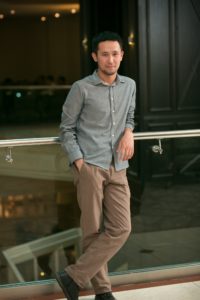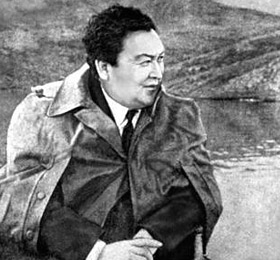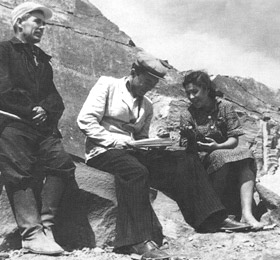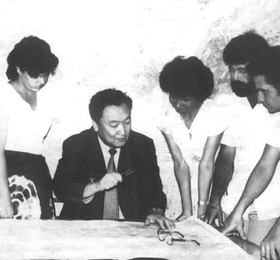Serik Zhumagazy
Serik Zhumagazy, 21 years old, had a chance to undertake the internship at Professor Steven Bull laboratory thanks to his victory in a competition organized by the Shakhmardan Yessenov Foundation. The student of al-Farabi KazNU was able to make his own modest contribution to the development of organic chemistry during the three months of his internship.
 How did your interest in chemistry appear?
How did your interest in chemistry appear?
In the 7th grade I was interested in the rocket construction, that’s when I began to read about how to make fuel for a homemade rocket. Clearly, it was all about chemistry. That’s where my passion for chemistry appeared and rocket construction took a back seat. I liked this science at once. Unlike mathematics or physics, in chemistry, there are no strict rules and laws, or at least very few of them. Chemistry, especially organic chemistry, is a vast and infinite science, and I think it’s fascinating. (laughing)
What interesting experience did you have during the grant competition of the Foundation?
Collection and submission of documents is something I will remember for a long time. I literally applied at the last minute. Of course, I will remember our favorite (second) round that was also interesting. Worthy opponents and interesting tasks piqued my excitement. After the second round, I discovered some features in my character, that I previously didn’t know about. And, in the end, we all just had an interesting time during the final round of the competition.
Tell us about the internship?
A research project I participated in involved attempts to discover a new method of synthesis of a whole class of organic molecules. They are very useful, but they are difficult to obtain. These molecules are of great practical importance, they are used everywhere from medicine and pharmaceuticals to agriculture.
What did you personally achieve?
Despite the fact that only few experiments were successful and we were not able to complete the project by the end of my three-month internship, my colleagues and I found optimal conditions for carrying out all chemical reactions. With a larger amount of time, it would be possible to obtain all the targeted products from the respective initial reagents. In general, the method can be called successfully tested, although there were problems at certain stages. At the end of my internship, I learned to work with modern devices that are now used in synthetic organic chemistry and interpret the obtained data. I improved my experimental skills, learned to find quickly and work effectively with scientific articles. I think I advanced as a researcher and future scientist. There is a probability that my name will be included in the list of authors of a scientific article that will be published in a scientific magazine upon completion of the project.
What’s next, Serik?
As for my personal priorities, my main goal is to enroll in master’s and doctoral programs. And the rest remains to be seen. In the future I plan to investigate the phenomenon of asymmetric catalysis. In simple words, many complex organic compounds are, like people, “righty” or “lefty”, and in consequence, the molecules of these compounds have completely different properties. Optimal ways of obtaining such molecules are of great importance. Thanks to the achievements in this field of chemistry, modern pharmaceutical industry and then some exist in our world today.
25.01.18, Stories
Seen by: 632




